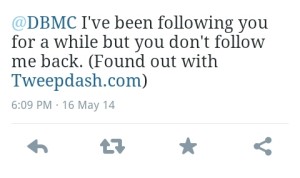Summer challenge #8 (final!): Take a (social media) break
Here we are, in the last week of August, and Labor Day is upon us. This means that summer is “officially” over, and so is the summer challenge series.
There’s been a lot of chatter over the past couple of months about social media being addictive. Huffington Post UK has an article that states that quitting Facebook and Twitter is harder to do than quitting smoking!
CBS News, in the article “How real a risk is social media addiction,” shares that the National Institutes of Health (NIH) has defined a “Internet Addiction Disorder (IAD).” The article states:
Symptoms for Internet addiction can be similar to addiction to anything else, and fall into two types of behaviors: an ever increasing need to engage with the object of the addiction, and a bad feeling when not getting enough of it.
I feel that I check Facebook and Twitter way too often. Is it bad? Here are 10 Signs It’s Time to Take a Break from your Social Media Self. Do any of those ring true to you? In my case, I think Twitter definitely impacts my productivity.
My final summer challenge to you is to take a break from social media. I don’t mean quit it completely, but just take a few days off and see how you fare. With a three-day weekend ahead, now is the perfect time to do it. Why take time to be on social media when you can be social in real life?
Forbes has a helpful article (Need a Break from Social Media? ) that concludes that taking a break from social media can help your productivity and impact in the long run, and even provides three steps for how to do it.
I am pledging right now to be off Facebook, Twitter and LinkedIn for all of the Labor Day Weekend. If you see me post, get on my case! Will you join me?
Have a fantastic Labor Day Weekend, and make the most of the last few days of “official” summer!

